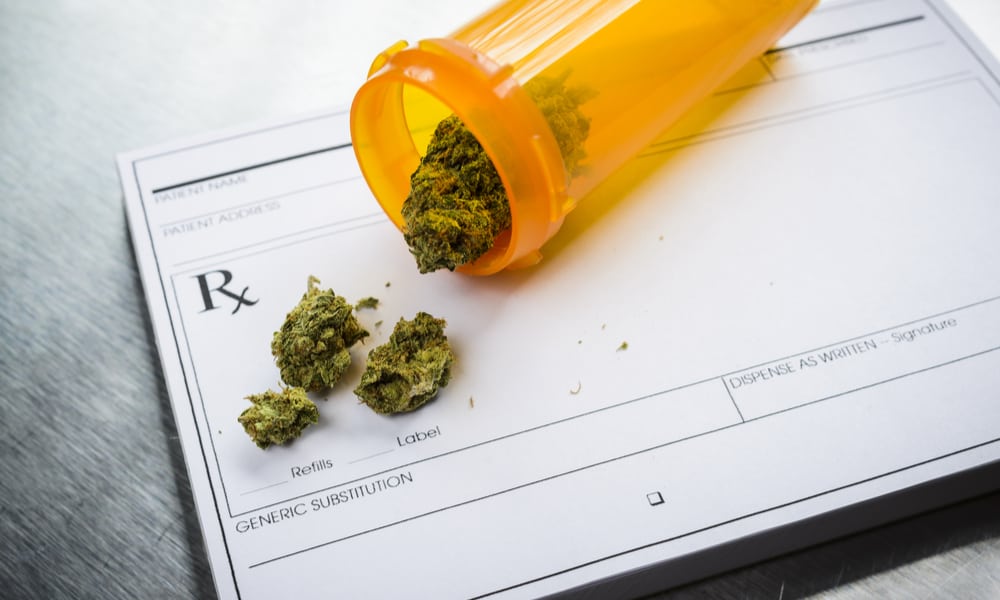You are here
Home 🌿 Medical Cannabis News 🌿 Study: Benefits of Cannabinoids Extend Beyond Spasticity in Those With Multiple Sclerosis 🌿Study: Benefits of Cannabinoids Extend Beyond Spasticity in Those With Multiple Sclerosis

A new study has “confirmed that the therapeutic benefit of cannabinoids may extend beyond spasticity, improving spasticity-related symptoms even in non-NRS responder patients”. The study, titled Effects of THC/CBD oromucosal spray on spasticity-related symptoms in people with multiple sclerosis: results from a retrospective multicenter study, was published in the journal Neurological Sciences

“The approval of 9-δ-tetrahydocannabinol (THC)+cannabidiol (CBD) oromucosal spray (Sativex®) in Italy as an add-on medication for the management of moderate to severe spasticity in multiple sclerosis (MS) has provided a new opportunity for MS patients with drug-resistant spasticity”, states the study. “We aimed to investigate the improvement of MS spasticity-related symptoms in a large cohort of patients with moderate to severe spasticity in daily clinical practice.”
Out of 1615 enrolled patients, 1432 reached the end of the first month trial period (T1). Of these, “1010 patients (70.5%) reached a ≥ 20% NRS score reduction compared with baseline (initial responders; IR). We found that 627 (43.8% of 1432) patients showed an improvement in at least one spasticity-related symptom (SRSr group), 543 (86.6%) of them belonging to the IR group and 84 (13.4%) to the spasticity NRS non-responders group.”
Based on this, researchers state that: “Our study confirmed that the therapeutic benefit of cannabinoids may extend beyond spasticity, improving spasticity-related symptoms even in non-NRS responder patients.”
The study’s full abstract can be found below:
INTRODUCTION:
The approval of 9-δ-tetrahydocannabinol (THC)+cannabidiol (CBD) oromucosal spray (Sativex®) in Italy as an add-on medication for the management of moderate to severe spasticity in multiple sclerosis (MS) has provided a new opportunity for MS patients with drug-resistant spasticity. We aimed to investigate the improvement of MS spasticity-related symptoms in a large cohort of patients with moderate to severe spasticity in daily clinical practice.
MATERIALS AND METHODS:
MS patients with drug-resistant spasticity were recruited from 30 Italian MS centers. All patients were eligible for THC:CBD treatment according to the approved label: ≥ 18 years of age, at least moderate spasticity (MS spasticity numerical rating scale [NRS] score ≥ 4) and not responding to the common antispastic drugs. Patients were evaluated at baseline (T0) and after 4 weeks of treatment (T1) with the spasticity NRS scale and were also asked about meaningful improvements in 6 key spasticity-related symptoms.
RESULTS:
Out of 1615 enrolled patients, 1432 reached the end of the first month trial period (T1). Of these, 1010 patients (70.5%) reached a ≥ 20% NRS score reduction compared with baseline (initial responders; IR). We found that 627 (43.8% of 1432) patients showed an improvement in at least one spasticity-related symptom (SRSr group), 543 (86.6%) of them belonging to the IR group and 84 (13.4%) to the spasticity NRS non-responders group.
CONCLUSION:
Our study confirmed that the therapeutic benefit of cannabinoids may extend beyond spasticity, improving spasticity-related symptoms even in non-NRS responder patients.
420 Intel is Your Source for Marijuana News
420 Intel Canada is your leading news source for the Canadian cannabis industry. Get the latest updates on Canadian cannabis stocks and developments on how Canada continues to be a major player in the worldwide recreational and medical cannabis industry.
420 Intel Canada is the Canadian Industry news outlet that will keep you updated on how these Canadian developments in recreational and medical marijuana will impact the country and the world. Our commitment is to bring you the most important cannabis news stories from across Canada every day of the week.
Marijuana industry news is a constant endeavor with new developments each day. For marijuana news across the True North, 420 Intel Canada promises to bring you quality, Canadian, cannabis industry news.
You can get 420 Intel news delivered directly to your inbox by signing up for our daily marijuana news, ensuring you’re always kept up to date on the ever-changing cannabis industry. To stay even better informed about marijuana legalization news follow us on Twitter, Facebook and LinkedIn.




